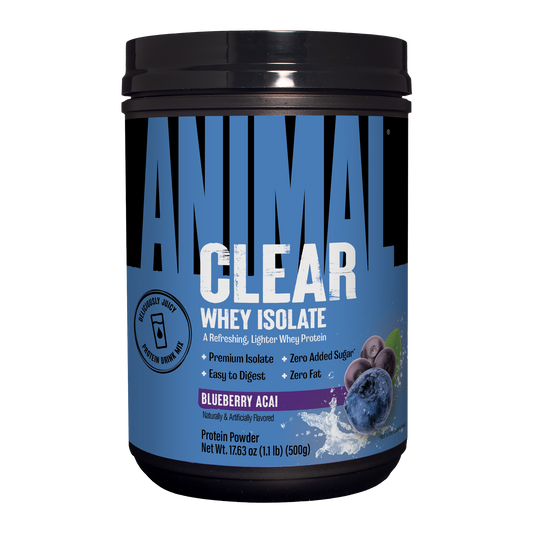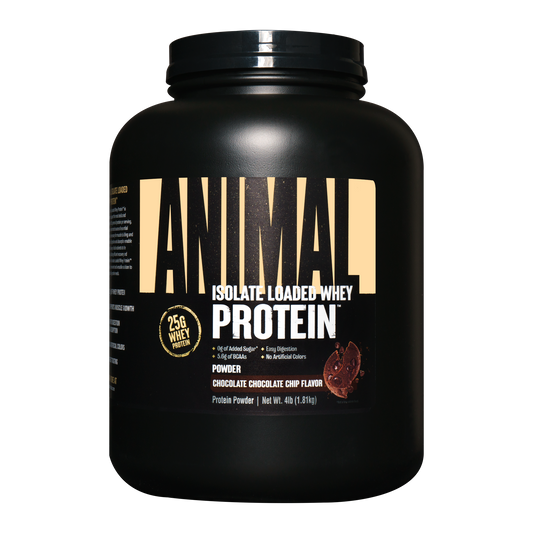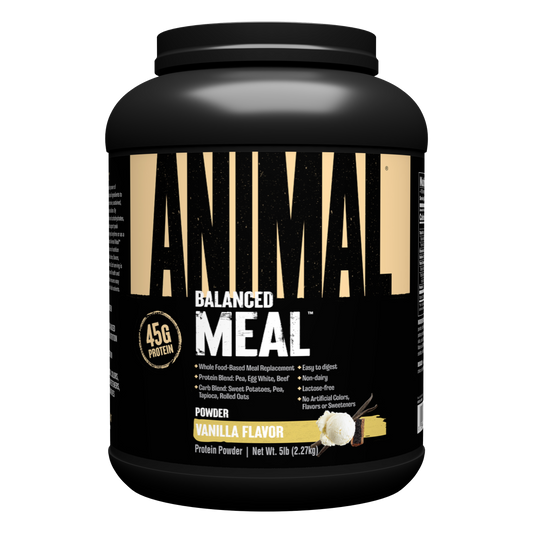Gut health has become a buzz phrase in the fitness industry. With all this talk about gut health, there must be something we can do to get in on healthy gut function. But where did gut health go wrong to begin with, or has it been wrong all along? There has been a lot more research coming out on the functions of the gastrointestinal (GI) tract and its connection to multiple body systems including the immune system, heart, brain, and thyroid gland. Poor gut health can impact sleep, mood, and of course digestion. This spotlight on the GI tract has spawned a proliferation of fitness “gurus” spouting misinformation and snake oil salesmen looking to capitalize on its popularity. But you won’t be fooled—you are different, an informed reader. Today we will tackle some current myths on the GI tract so that you can make the right calls on gut health.
Gas and Bloating = Poor Gut Health
To be clear, the presence of gas and bloating does not mean you have poor gut health. Gas and bloating are derived from the bacteria in the gut (microbiome) digesting fermentable foods and producing hydrogen gas. The gas leads to bloating and flatulence. These fermentable foods help the microbiome flourish and provide variety and density to our natural flora. The microbiome serves to provide fuel for GI cells, aid immune function, and fight off harmful pathogens, so we want to have some of these gas-forming foods.
Gas and bloating are normal GI functions. However, some sensitive individuals have a condition called Irritable Bowel Syndrome (IBS) that can lead to diarrhea, constipation, and discomfort. If gas and bloating make you uncomfortable, here are some ways to manage excessive gas:
- Wait it out if you are introducing a new food. You may adapt to the change.
- As large, sudden increases in fiber can cause issues, slow intake and be consistent.
- If certain foods might be the culprit, test them one at a time by removing them. Look for foods that are common food allergies first (eggs, nuts, gluten), then look at highly gas-forming foods.
- Temporarily adopt a low fermentable oligosaccharides, disaccharides, monosaccharides, and polyols (FODMAP) diet. GI bugs go crazy with these highly fermentable gas-forming foods. This is not meant as a long-term diet as low FODMAP can decrease the good microbiome bacteria as well.
You MUST Poop Once Per Day
When I became a dietician, I thought I would speak a lot about food and what goes in the mouth but quickly realized I was going to talk a lot about what comes out of the other side too. The frequency of bowel movement can vary greatly among people, so defining what is “normal” is not clear cut. Anywhere from three times to several bowel movements per day could be considered normal, while fewer than three per week could mean you’re constipated. The best way to know whether or not you have an issue is to assess the stool itself. The Bristol stool scale is a clinical diagnostic tool to assess fecal matter consistency. On a scale of 1-7, a rating of 3 or 4 is ideal. Type 1 (small nuggets) indicates constipation and a possible need for increased fluids and fiber. Type 7 (watery) indicates diarrhea, which can mean sickness and a need for fiber as well. If you have chronic constipation or diarrhea, follow up with your physician to rule out bowel conditions or disease. The Bristol Scale can be a helpful tool for you or your clients if you are not sure what “normal” consistency should look like.
You MUST Have a Fiber Supplement
Fiber and water are the basics to having normal bowel movements. Also, higher fiber intakes across multiple studies have shown lower disease rates across various populations. A typical western diet of high fat and processed foods and low in fiber is associated with a higher occurrence of disease. When we look at healthy populations, we can see dietary patterns that are associated with healthy outcomes. The secret is to eat more fruits, vegetables, whole grains, and legumes. We should always promote this food-first approach. Sorry, I don’t have the gut health hack that is a sexy sell, but consistent basics are almost always key.
Now, if you’re unable to eat these foods, a supplement aid like Animal Greens that contains a variety of fiber types can help you meet your fiber targets. The current recommendation is 14g of fiber per 1000 calories or 25g for females and 38g for males. I know some of you reading this are bulking and have low appetite—maybe you don’t feel like you have space for all of these veggies. Remember, long-term health is going to keep you bodybuilding for the long term. Stick to low gas-forming veggies (low in FODMAP like green beans, spinach, and asparagus) and stick to cooked veggies over raw as they digest faster. It does not have to be all or nothing.
You MUST have a Probiotic Supplement
We know the microbiome is important so let’s make it better and supplement with healthy bacteria. Hold on a second. What’s to say the foods we eat aren’t doing a great job to begin with? Certain foods contain non-digestible fibers called prebiotics that can be fermented by the microbiome. Some of these foods include bananas, green apples, asparagus, broccoli, oats, and whole grains. So you very likely already have foods in place providing fuel for the healthy bugs.
If you have prebiotic foods in place, is there a greater benefit to taking a probiotic supplement? As of right now, the research on probiotics is still in its infancy. We do know, however, that supplementing with some strains of probiotics benefits specific health situations such as Irritable Bowel Syndrome, antibiotic-associated diarrhea, travelers’ diarrhea, constipation, and possibly stress or anxiety-related GI distress. Visit usprobioicguide.com for the full list. Those of us who do not have GI issues or special conditions do not need an extra probiotic.
You MUST Eat Yogurt
The yogurt market is highly saturated with products—there are endless options in the grocery store. People who eat yogurt tend to be thinner, but this does not mean yogurt will lean you up. According to the FDA, real yogurt must contain S. thermophilus and L. bulgaricus. Many yogurts do not contain the healthful bacteria people are seeking; look for a “Live & Active Cultures (LAC)” seal, which indicates that the yogurt has been third-party verified by the International Dairy Foods Association to contain at least 100 million cultures per gram.
One of yogurt’s many positive health benefits is that it can improve lactose tolerance and digestion. There is also an association between the consumption of fermented milk and reduced risk of breast and colorectal cancer and type 2 diabetes, improved weight maintenance, and improved cardiovascular, bone, and gastrointestinal health. Although eating yogurt is associated with improved health outcomes, so are many other types of eating patterns. Yogurt is not a must, but it can certainly have a place in a varied diet that supports GI health.
There is no magic bullet or hack to gut health. Do the basics—eat a variety of fruit, vegetables, legumes, and dairy—to support a healthy microbiome and normal GI function. And make sure you know what normal GI function looks like before you jump into the latest diet or take a supplement.
References
Savaiano DA, Hutkins RW. Yogurt, cultured fermented milk, and health: a systematic review. Nutr Rev. 2020 May 23:nuaa013. doi: 10.1093/nutrit/nuaa013. Epub ahead of print. PMID: 32447398.
Rao SS, Yu S, Fedewa A. Systematic review: dietary fibre and FODMAP-restricted diet in the management of constipation and irritable bowel syndrome. Aliment Pharmacol Ther. 2015 Jun;41(12):1256-70. doi: 10.1111/apt.13167. Epub 2015 Apr 22. Erratum in: Aliment Pharmacol Ther. 2015 Aug;42(4):490. PMID: 25903636.
Cena H, Calder PC. Defining a Healthy Diet: Evidence for The Role of Contemporary Dietary Patterns in Health and Disease. Nutrients. 2020 Jan 27;12(2):334. doi: 10.3390/nu12020334. PMID: 32012681; PMCID: PMC7071223.
Dupont G, Wahl L, Alcala Dominguez T, Wong TL, Haładaj R, Wysiadecki G, Iwanaga J, Tubbs RS. Anatomy, physiology, and updates on the clinical management of constipation. Clin Anat. 2020 Nov;33(8):1181-1186. doi: 10.1002/ca.23561. Epub 2020 Jan 28. PMID: 31960980.
Suez J, Zmora N, Segal E, Elinav E. The pros, cons, and many unknowns of probiotics. Nat Med. 2019 May;25(5):716-729. doi: 10.1038/s41591-019-0439-x. Epub 2019 May 6. PMID: 31061539.




































